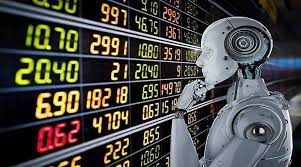In the ever-evolving landscape of financial markets, traders are constantly seeking innovative ways to enhance their strategies, mitigate risks, and maximize profits. One of the most intriguing developments in recent years has been the rise of Forex robots, also known as expert forex robot (EAs). These automated trading systems have garnered significant attention for their potential to revolutionize the way individuals engage with the foreign exchange market.
Forex robots are software programs designed to execute trades on behalf of traders based on predefined criteria and algorithms. They operate on the principle of algorithmic trading, leveraging complex mathematical models and technical indicators to identify trading opportunities and make decisions without human intervention. This automation eliminates emotional biases and allows for faster execution, potentially leading to more consistent and disciplined trading outcomes.
The appeal of Forex robots lies in their ability to analyze vast amounts of market data in real-time and execute trades with precision and speed. Unlike human traders who may struggle to monitor multiple currency pairs simultaneously, these automated systems can monitor the market 24/7 without fatigue, ensuring that no potential opportunity goes unnoticed. Moreover, Forex robots can react to market fluctuations instantaneously, executing trades within milliseconds, which is often beyond the capability of human traders.
One of the key advantages of Forex robots is their capacity to adhere strictly to predefined trading parameters. By programming specific entry and exit criteria, risk management rules, and position sizing strategies, traders can maintain a disciplined approach to trading even in volatile market conditions. This disciplined execution helps mitigate the impact of emotional decision-making, such as fear and greed, which are common pitfalls for many traders.
Furthermore, Forex robots can backtest trading strategies using historical market data to assess their viability and performance before deploying them in live trading environments. This allows traders to refine their strategies and optimize parameters to achieve better results. Backtesting provides valuable insights into how a strategy would have performed under different market conditions, helping traders make informed decisions about its suitability for real-world trading.
While the potential benefits of Forex robots are undeniable, it’s essential to recognize that they are not a panacea for trading success. Like any tool, their effectiveness depends on various factors, including the quality of the underlying strategy, market conditions, and the robustness of the software itself. Moreover, automated trading systems are not immune to risks, and traders should exercise caution and perform due diligence before relying solely on them for trading decisions.
One common concern surrounding Forex robots is the risk of over-optimization, wherein a trading strategy is excessively tuned to historical data but fails to perform well in live markets due to changing conditions. To mitigate this risk, traders should focus on developing robust, adaptive strategies that can withstand different market environments. Additionally, ongoing monitoring and periodic reassessment of the robot’s performance are crucial to ensure its continued effectiveness.
Another consideration for traders is the selection of a reputable Forex robot provider. With numerous options available in the market, choosing the right software can be challenging. It’s essential to research and evaluate the track record, transparency, and support services offered by the provider before making a decision. Additionally, traders should be wary of unrealistic claims of overnight success or guaranteed profits, as these are often red flags for potential scams.
In conclusion, Forex robots represent a powerful tool for traders looking to automate their trading strategies and optimize their performance in the foreign exchange market. By leveraging advanced algorithms and technology, these automated systems offer the potential for faster execution, disciplined trading, and improved consistency. However, success with Forex robots requires careful strategy development, risk management, and ongoing monitoring. With the right approach and due diligence, traders can harness the power of automation to unlock new opportunities in the dynamic world of Forex trading.
